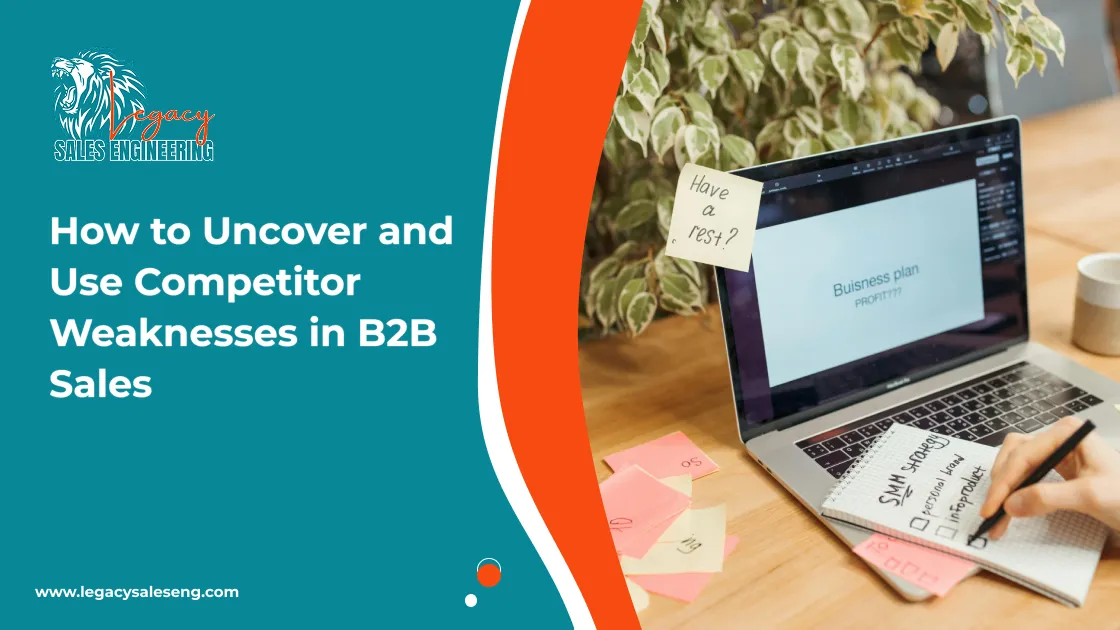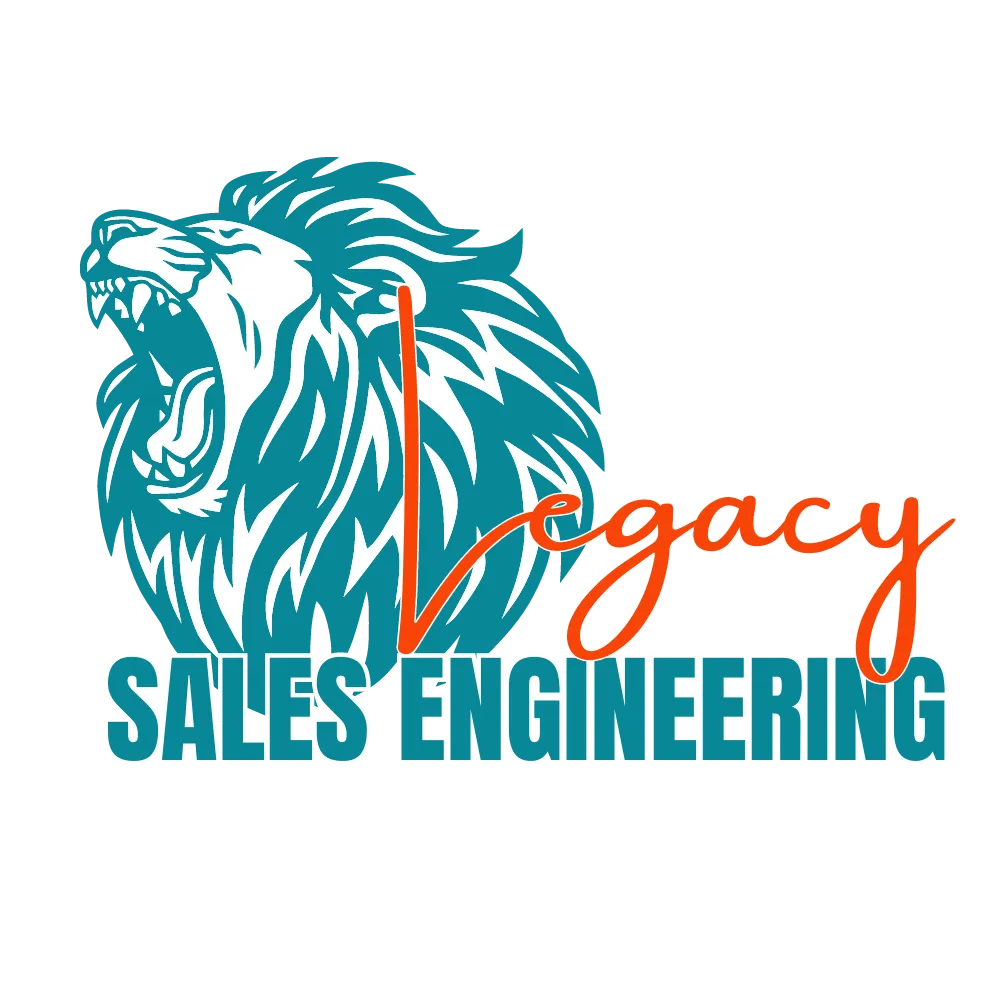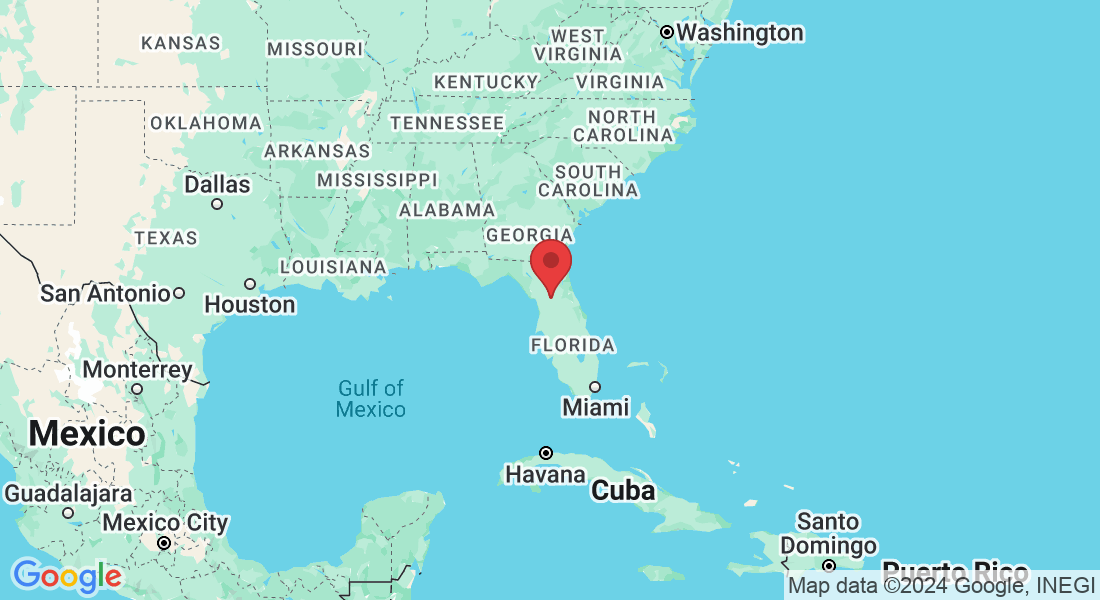See Our Latest Blogs
Explore Insights and Tips in Our Latest Blogs

How to Uncover and Use Competitor Weaknesses in B2B Sales
In the competitive world of industrial B2B sales, knowing your product is only half the battle. To consistently win deals, especially in a manufacturing-driven region like Ocala, Florida—you need to understand the playing field. That means digging deep into how your competitors operate, where they fall short, and how to turn those gaps into your greatest advantages.
This isn’t about mudslinging. It’s about strategic positioning. Competitor analysis, when approached ethically and intelligently, becomes one of the most powerful tools in a sales team's arsenal. The key lies in identifying weaknesses that matter to your buyers and framing your value in a way that clearly outperforms the alternatives.
Why Knowing Your Competitor’s Weakness Matters More Than Ever
Buyers today are well-informed. They often research multiple vendors before making contact and come to conversations armed with comparisons. If your pitch sounds identical to your competitor’s, or worse, if they’ve heard it before, you lose your edge.
By uncovering competitor weaknesses, you can:
Highlight gaps in service, support, or product quality that matter to your prospects.
Preempt objections by offering solutions that competitors overlook.
Build credibility by demonstrating knowledge of the industry landscape.
Tailor messaging that differentiates your offering without resorting to price wars.
Especially in Ocala’s industrial sector, where long-term vendor relationships matter, showing that you’ve done your homework creates trust and positions you as a serious, strategic partner.
Step 1: Start With Your Buyers, Not Your Competitors
Before you dig through competitor websites, start with your own customers and prospects. Ask them:
Why did you choose us over others?
What do you wish your previous vendor had done differently?
What almost made you go with someone else?
These conversations often reveal more than online research ever could. Patterns will emerge, perhaps a competitor is slow to respond, lacks technical support, or has hidden fees. These are real-world pain points that can be framed as value propositions in your next pitch.
Step 2: Use Public Information and Strategic Tools
Once you understand what your customers care about, start investigating competitor behavior. You can gather valuable insights from:
Online reviews: Look at Google, G2, and industry-specific directories. See what clients complain about repeatedly.
Job listings: A hiring spree in customer success or tech support could indicate internal challenges.
Case studies and press releases: What do they highlight? More importantly, what do they avoid talking about?
Their website and social media: Is the content outdated? Are they targeting a different audience than you? What are they promising?
In Ocala’s industrial scene, competitors may not always have flashy websites or big digital footprints. But even minimal content can reveal positioning, pricing models, or industries they’re focused on, helping you identify where your offer fits better.
Step 3: Ask the Right Questions During Discovery
You don’t have to guess competitor weaknesses, you can uncover them during your initial sales calls, if you listen closely. Try asking:
“What solutions have you used in the past for this problem?”
“What worked and what didn’t?”
“Was there anything about the previous vendor you wish had been different?”
These answers will often surface competitor names and complaints organically. If a plant manager in Ocala says, “We used Company X, but their response time was terrible,” that’s not just feedback, it’s a positioning opportunity.
You don’t need to name names. Instead, frame your strengths in a way that aligns with the customer’s previous frustrations: “We guarantee 48-hour response for all commercial support tickets, with local coverage across Ocala.”
Step 4: Map Weaknesses to Your Differentiators
Once you’ve gathered data, organize it into a simple grid:
Competitor
Common Complaints
Your Strength
Company A
Slow installs, poor local support
Fast turnaround, Ocala-based technicians
Company B
Inflexible pricing
Custom packages based on project size
Company C
Limited post-sale service
Dedicated account manager and follow-ups
You now have a playbook for objection handling, proposal writing, and cold outreach. And your messaging becomes focused, grounded, and credible.
Step 5: Build Value Instead of Attacking
Here’s the golden rule: never badmouth a competitor. It makes your brand look insecure and can alienate a buyer who previously worked with them. Instead, use competitor gaps to position your offer more strategically.
For example:
Instead of saying: “Company B’s pricing is a ripoff,”
Say: “Our flexible pricing model allows us to scale with your business, so you never pay for what you don’t need.”Instead of saying: “They take forever to install,”
Say: “Our local crew in Ocala enables faster response times, helping you reduce downtime.”
This subtle shift moves the conversation from comparison to confidence.
Step 6: Monitor and Refresh Your Competitive Intel
Competitive weaknesses are not static. A company that was failing on service might overhaul its team. Others may change pricing or roll out new features. That’s why a monthly or quarterly review of your top 3 to 5 competitors is essential.
Tools like Google Alerts, LinkedIn monitoring, and even direct feedback from field reps can help you stay ahead. Treat competitor analysis as a living document. The more informed your sales reps are, the more precise and persuasive their conversations will be.
FAQs
1. Is it ethical to research competitor weaknesses?
Yes, as long as your research is based on public information, customer feedback, and honest discovery questions. The goal is not to slander, but to position yourself effectively.
2. How do I know which competitor weaknesses to highlight?
Focus on weaknesses that your buyers care about, like service delays, communication gaps, or rigid contracts. Anything that impacts their goals is fair game for differentiation.
3. How often should I update my competitor analysis?
At least quarterly. In fast-moving markets or local ecosystems like Ocala, more frequent reviews may be necessary to stay competitive.
4. Can I use this strategy in proposals and cold outreach?
Absolutely. Just keep the messaging professional and focus on your strengths. Use competitor weaknesses as a backdrop, not the headline.
If you're an industrial business in Ocala looking to improve your sales enablement strategy, Legacy Sales Engineering is ready to help. We specialize in creating high-performance playbooks, positioning strategies, and competitor insights that drive measurable growth. Reach out today for a free discovery call.
Driving Growth, Amplifying Impact
Shawn Hughs

He has already been extremely helpful and insightful when it comes to Marking and digital footprints. His knowledge and expertise of his field is unmatched!
Joshua Brosius

The team at Legacy Sales Engineering has helped take our businesses to the next level.
Gus Blanco

Shawn is articulate, eloquent and extremely talented in so many ways. He has a customer focus perception of how business is done. We are so happy to have found him and look forward to using them for other services. Highly recommend.
Get In Touch
Email: [email protected]
Location
Offices located in Hawthorne, FL
Proudly Serving All 50 States
Assistance Hours
Mon – Sat 9:00am – 8:00pm
Sunday – CLOSED
Phone Number:
(352) 612-3327


